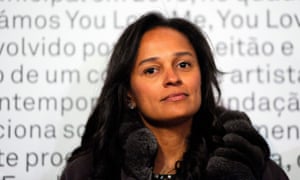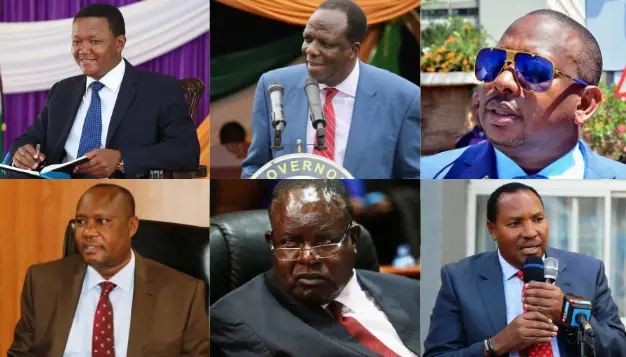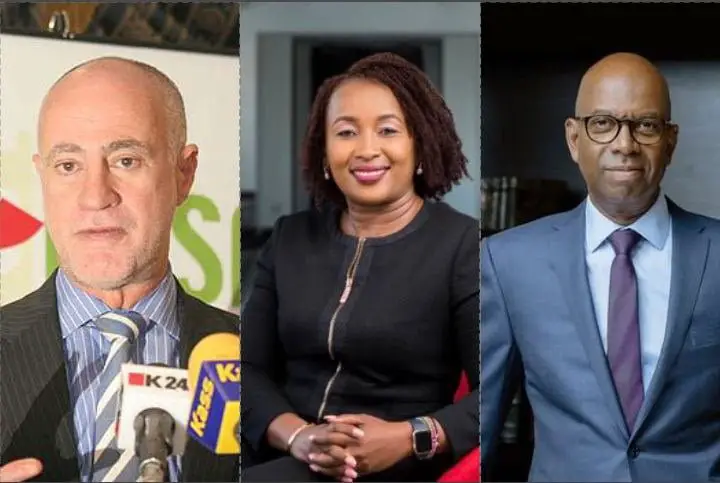[ad_1]
The global chairman of PwC has warned that heads could roll at the professional services firm over its links to Isabel dos Santos, Africa’s richest woman, who is battling allegations that she obtained her wealth through corruption and nepotism.
Bob Moritz, whose firm advised companies belonging to Dos Santos and her husband across multiple jurisdictions, told the Guardian he was “shocked and disappointed” by recent disclosures about the British-headquartered accounting firm’s work for the daughter of Angola’s former president.
The complex financial schemes that helped Dos Santos amass an estimated $2.2bn (£1.7bn) fortune at the expense of the Angolan state have been revealed this week in the Luanda Leaks investigation, based on a huge cache of documents leaked from her business empire.
The Luanda Leaks project is based on a trove of 715,000 emails, charts, contracts, audits and accounts detailing the business operations of Isabel dos Santos, the daughter of the former president of Angola.
The files were initially obtained by the anti-corruption charity Platform to Protect Whistleblowers in Africa (PPLAAF), which shared them with the International Consortium of Investigative Journalists (ICIJ).
The documents, which cover a period between 1980 and 2018, have been reviewed by more than 120 journalists from 37 media outlets, including the Guardian, the BBC and the Portuguese newspaper Expresso.
Moritz said a PwC investigation would examine whether any individuals at the partnership should lose leadership positions, have their bonuses docked or lose their jobs.
“We’ll look at the individual behaviours, as to whether they come out of leadership roles or have compensation implications, or maybe even [come] out of jobs,” Moritz said, on the sidelines of the World Economic Forum in Davos. “We’ll wait for the investigation, I don’t want to rush. But we need to move with speed to take action to regain confidence.”
Dos Santos has denied that her fortune is the result of nepotism or corruption, and she and her husband have rejected any allegations of wrongdoing, saying their wealth is the result of decades of hard work, and that moves to freeze their assets in Angola are part of a politically motivated “witch-hunt” by her father’s successor as president.
“There is an orchestrated attack by the current government that is completely politically motivated, it’s completely unfounded,” Dos Santos told BBC News. “I can say my holdings are commercial, there are no proceeds from contracts or public contracts or money that has been deviated from other funds.”
On Monday a Portuguese bank part-owned by Dos Santos announced that she and her associates had been banned as customers. After being shut out by some of the world’s biggest banks, Dos Santos had been relying increasingly on Eurobic, in which she holds a 42.5% stake, to move money.
Eurobic issued a statement distancing itself from its main shareholder. Citing the Luanda Leaks, and the “public perception that this bank may not entirely fulfil its obligations” because Dos Santos was a shareholder, Eurobic said its board had decided to “terminate the commercial relationship with entities controlled by [Dos Santos] and people closely related [to her]”.

Dos Santos began her career at Coopers & Lybrand, which went on to become PwC. Photograph: Fernando Veludo/AFP via Getty Images
The move comes as the fallout from the Dos Santos revelations shifts to the lawyers, accountants and other western companies that aided her business empire.
The Luanda Leaks consist of a cache of 715,0000 files from the administrators of her empire, examined by the Guardian and media outlets in 20 countries in an investigation led by the International Consortium of Investigative Journalists (ICIJ).
The documents suggest PwC, one of the big four global accountancy firms, acted as auditor, consultant and tax adviser to companies controlled by Dos Santos and her husband in Switzerland, Malta, the Netherlands and Angola. According to the New York Times, another ICIJ partner, PwC worked with 20 of their companies.
Moritz said that from a reputational perspective, the Dos Santos story was the worst thing to have happened to PwC under his chairmanship, but he believed it was an exception and not the norm.
The company, which made millions from its work for Dos Santos, previously said it was terminating any work for entities controlled by members of her family “in response to the very serious and concerning allegations”.
After graduating from a British university, Dos Santos began her career at Coopers & Lybrand, which went on to become PricewaterhouseCoopers, or PwC. She later hired former PwC staff as close advisers.
They include the chair of Fidequity, the Lisbon wealth management outfit that helped administer her empire and whose data forms part of the leak. When Dos Santos was appointed to run the Angolan state oil company, Sonangol, she recruited her chief financial officer from PwC.
Moritz said he was disappointed that PwC had not picked up warning signals from its work in Angola. “When we look at some of the signs that were there, we should have picked them up earlier, and that was our mistake,” he said.
Moritz said the investigation at PwC would go as high as it needed to, but he denied that his own job was at risk. Appointed in 2016, he is the chairman of the PwC International Network, which supports more than 276,000 employees in 157 countries. In this capacity, he leads a network of PwC firms that serve clients around the globe from multinational companies to startups.
“I’m not worried about my job, but I’m worried about making sure this organisation does what it needs to do,” he said.
[ad_2]
















































